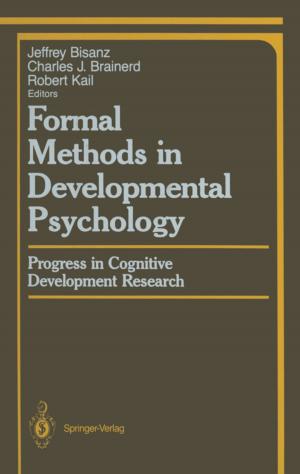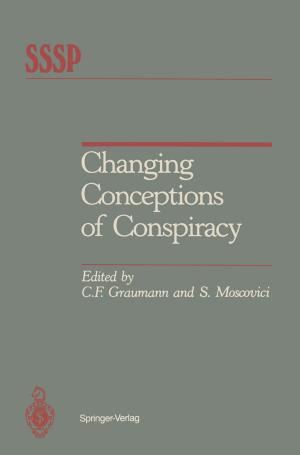Handbook of Identity Theory and Research
Nonfiction, Health & Well Being, Psychology, Personality, Child & Adolescent, Child Development| Author: | ISBN: | 9781441979889 | |
| Publisher: | Springer New York | Publication: | June 22, 2011 |
| Imprint: | Springer | Language: | English |
| Author: | |
| ISBN: | 9781441979889 |
| Publisher: | Springer New York |
| Publication: | June 22, 2011 |
| Imprint: | Springer |
| Language: | English |
Identity is one of the most extensively studied constructs in the social sciences. Yet, despite the wealth of findings across many disciplines, identity researchers remain divided over such enduring fundamental questions as: What exactly is identity, and how do identity processes function? Do people have a single identity or multiple identities? Is identity individually or collectively oriented? Personally or socially constructed? Stable or constantly in flux? The Handbook of Identity Theory and Research offers the rare opportunity to address the questions and reconcile these seeming contradictions, bringing unity and clarity to a diverse and fragmented literature.
This exhaustive reference work emphasizes the depth and complexity of identity processes and domains and presents perspectives from many different theoretical schools and empirical approaches. Contributing authors provide perspectives from psychology (e.g., narrative, social identity theory, neo-Eriksonian) and from other disciplines (e.g., sociology, political science, ethnic studies); and the editors highlight the links between chapters that provide complementary insights on related subjects.
In addition to covering identity processes and categories that are well-known to the field, the Handbook tackles many emerging issues, including:
- Identity development among adopted persons.
- Identity processes in interpersonal relationships.
- Effects of globalization on cultural identity.
- Transgender experience and identity.
- Consumer identity and shopping behavior.
- Social identity processes in xenophobia and genocide.
The Handbook of Identity Theory and Research lends itself to a wealth of uses by scholars, clinicians, and graduate students across many disciplines, including social, developmental, and child/school psychology; human development and family studies; sociology; cultural anthropology; gender, ethnic, and communication studies; education; and counseling.
Identity is one of the most extensively studied constructs in the social sciences. Yet, despite the wealth of findings across many disciplines, identity researchers remain divided over such enduring fundamental questions as: What exactly is identity, and how do identity processes function? Do people have a single identity or multiple identities? Is identity individually or collectively oriented? Personally or socially constructed? Stable or constantly in flux? The Handbook of Identity Theory and Research offers the rare opportunity to address the questions and reconcile these seeming contradictions, bringing unity and clarity to a diverse and fragmented literature.
This exhaustive reference work emphasizes the depth and complexity of identity processes and domains and presents perspectives from many different theoretical schools and empirical approaches. Contributing authors provide perspectives from psychology (e.g., narrative, social identity theory, neo-Eriksonian) and from other disciplines (e.g., sociology, political science, ethnic studies); and the editors highlight the links between chapters that provide complementary insights on related subjects.
In addition to covering identity processes and categories that are well-known to the field, the Handbook tackles many emerging issues, including:
- Identity development among adopted persons.
- Identity processes in interpersonal relationships.
- Effects of globalization on cultural identity.
- Transgender experience and identity.
- Consumer identity and shopping behavior.
- Social identity processes in xenophobia and genocide.
The Handbook of Identity Theory and Research lends itself to a wealth of uses by scholars, clinicians, and graduate students across many disciplines, including social, developmental, and child/school psychology; human development and family studies; sociology; cultural anthropology; gender, ethnic, and communication studies; education; and counseling.















